Shocking moment girl, 11, is ‘saved from paedophile who now faces being chemically castrated for trying to drag her into his flat’
This is the shocking moment an 11-year-old girl was rescued from a suspected pedophile who allegedly tried to drag her to his flat in Kazakhstan.
The child is seen on security camera footage as the alleged attacker tries to guide her up the stairs of his apartment building.
Police officer Rymgali Zhibraev then intervenes to save the girl and free her from his grasp. The girl clings to the officer's hand for safety.
Zhibraev and the suspect are then seen struggling as the officer tries to detain him before he can “march him to the police station.”
If convicted of attempted kidnapping with intent to commit a sexual assault, he could face chemical castration under Kazakhstan's strict laws.
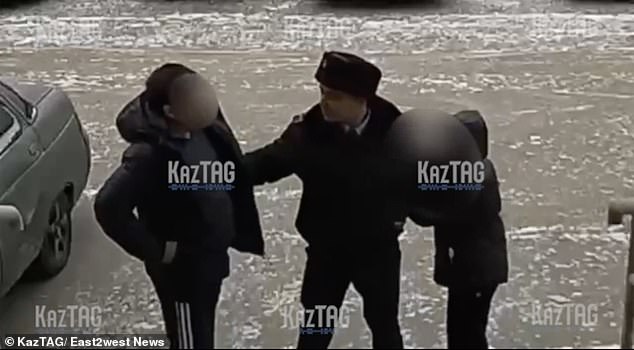
Police officer Rymgali Zhibraev (center) saves a child (right) from a suspected sex offender (left)
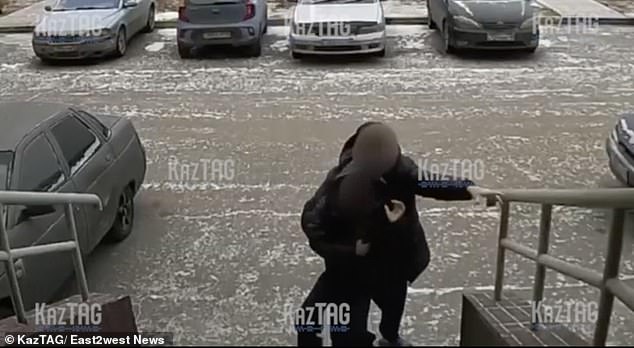
The officer struggles with the suspect as he tries to arrest him
The police inspector is considered a hero in Kazakhstan for acting quickly to both save the terrified girl and arrest the suspected sex offender.
“While I was going about my daily duties, I heard cries for help on the street,” he recalls.
'I saw a man at the entrance forcibly holding a girl (11 or 12 years old) as he tried to take her to his flat.
'It was clear the child was trying to escape. She was in danger. I snatched her from his grasp… The girl was very scared and did not let go of my hand.'
The inspector said, “With my other hand I grabbed him by the clothes and marched him to the police station.”
The officer reunited the girl with her mother and was widely praised by the media in his country.
“I don't consider my action heroic,” he said. “Any police officer in my place would have done the same thing.”
A preliminary investigation has been launched under the country's attempted rape laws.
If found guilty, the unnamed suspect could face chemical castration, a law in effect since 2018 and the decision stands in the hands of the courts.
“It consists of a man being injected with drugs that effectively dull his sexual drive for a period of time,” Radio Free Europe reported in 2016 when the bill was first signed into law.
Interior Ministry official Alexey Milyuk said in 2021 that since the law came into force, “the number of crimes against minors has decreased by 15.4 percent.”
Despite this, there has been a 4.8 percent increase in sexual assaults on children, but this may be due to increased reporting of crimes, he said.
The Kazakh government believes that using forced chemical castration to reduce male libido for life among convicted pedophiles will ultimately reduce sex crimes against children.
“Legislation has been significantly strengthened to prevent crimes against the sexual integrity of children,” he said.
'Early release for pedophiles is prohibited… Prison sentences for rape and sexual violence against children have been increased from twelve years to life in prison.'
Kazakhstan now locks all pedophiles in high-security prisons, Milyuk said.
This year, '25 convicts who have been sentenced by the court to forced chemical castration are now in the penitentiary system.'
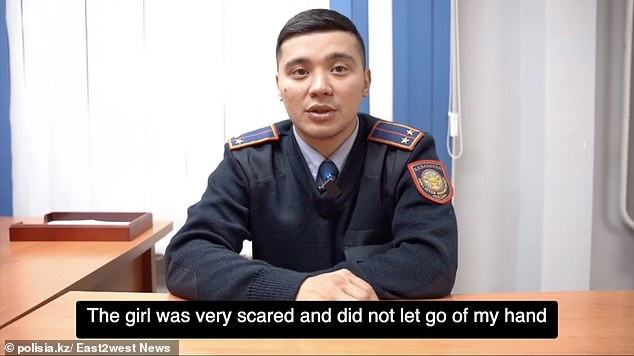
Zhibraev later described the ordeal, saying he does not consider his actions heroic
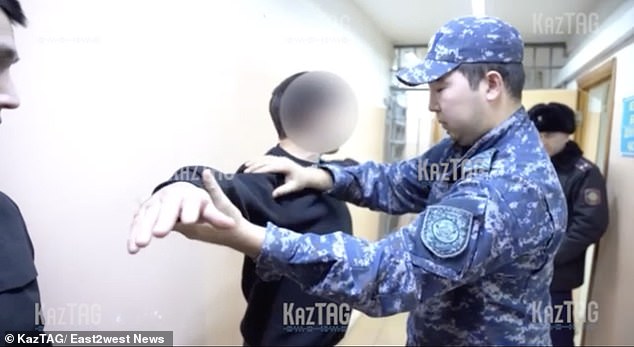
A suspected sex offender is arrested in Kazakhstan after a police officer intervened
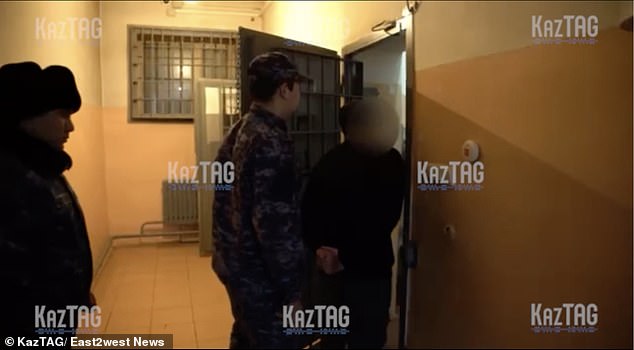
A preliminary investigation has been launched under the country's attempted rape laws
Korea also introduced chemical castrations for sex offenders in July 2011. Since then, some research has been done on its effectiveness as a deterrent.
Researchers in 2013 suggested the causal link between testosterone and sexual crimes remains 'uncertain'.
Nevertheless, they say it can reduce recidivism rates to as little as two to five percent, when they would otherwise be expected to be 50 percent.
However, they write: “Chemical castration may not guarantee human rights for involuntary cases committed without the sex offender's informed consent, and thus may be considered punishment only and not treatment.”
At the time, medications in South Korea cost $4,650 per person per year to administer leuprolide acetate every three months.
